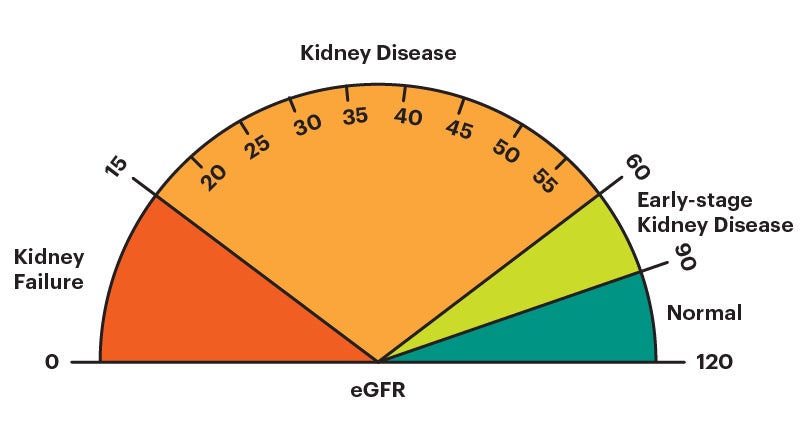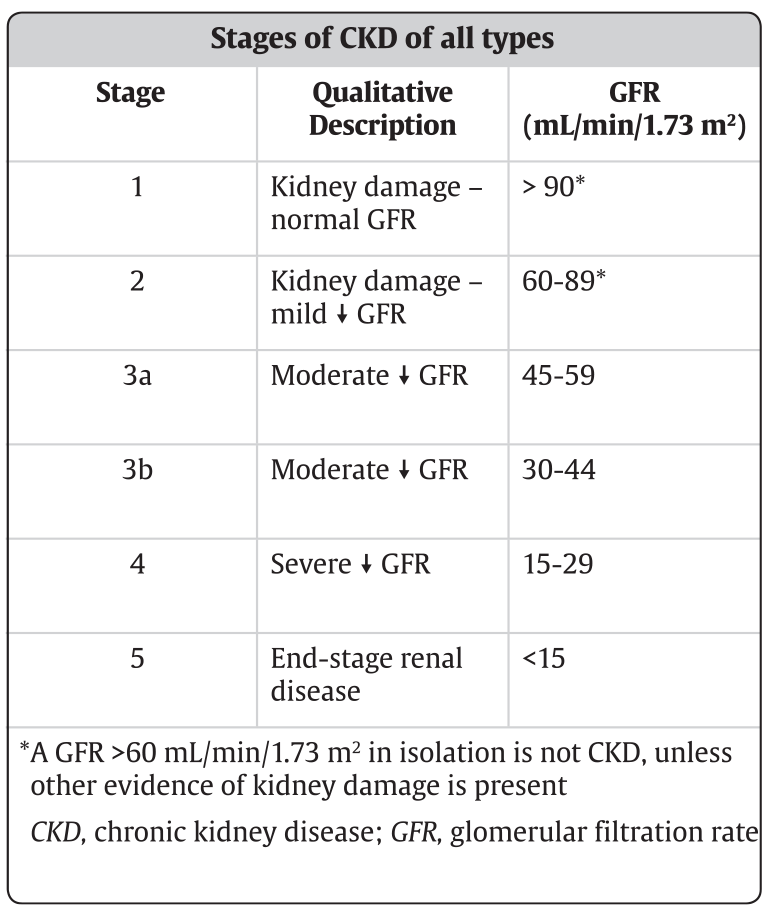Who should be referred to a nephrologist (kidney doctor)?

People with CKD Stage 4 .. primarily. That is the short answer.
In the UK, you cannot refer yourself directly to a nephrologist (a hospital-based kidney doctor). This has to be done by your GP.
You should see a nephrologist if your GFR (glomerular filtration rate, the key measure of kidney function) is less than 30 mls/min.
This is Stage 4 CKD. The creatinine blood test is likely to be 150-200 mcmol/L at this point.


CKD has 5 stages based on the GFR (based on the blood creatinine level). Stage 1 is the ‘best’, Stage 5 is the least good.
Other indications for referral
It is not just the CKD stage (based on GFR/creatinine) that decides whether you need to be seen. There are other reasons for referral:
- If CKD is worsening rapidly. If you have CKD1 but progress to CKD3B (say) in 6 months this can be ‘worse’ than being stable in CKD4. So the rate of decline of kidney function is as/more important than the stage
- Unclear diagnosis – i.e. the cause of your CKD is not clear
- Very high BP – that is difficult to control by your GP, especially if combined with CKD
- Family history – of CKD/ESRF (e.g. polycystic kidney disease, PKD)
- Alot of protein in your urine (proteinuria) – especially if your urinary ACR (uACR) is over 30 mg/mmol. Normal is under 3 mg/mmol. This can occur with normal kidney function (GFR over 90 ml/min). If it is > 200, this is nephrotic syndrome, and you need to see a nephrologist very soon
- Macroscopic haematuria (blood in the urine that you can see) – and a kidney surgeon (urologist) has not found a cause (e.g. kidney cancer or stones).
Note. Patients with CKD3B should be discussed with a nephrologist, even if not all of them need to be seen.

